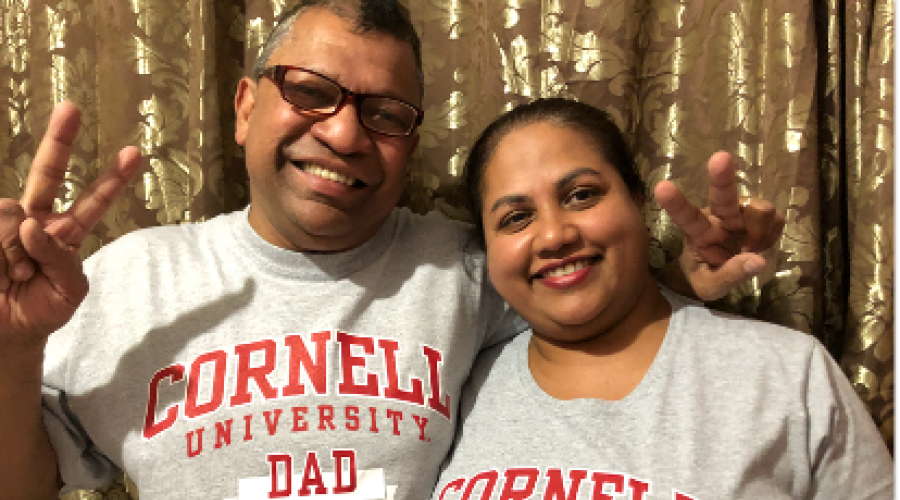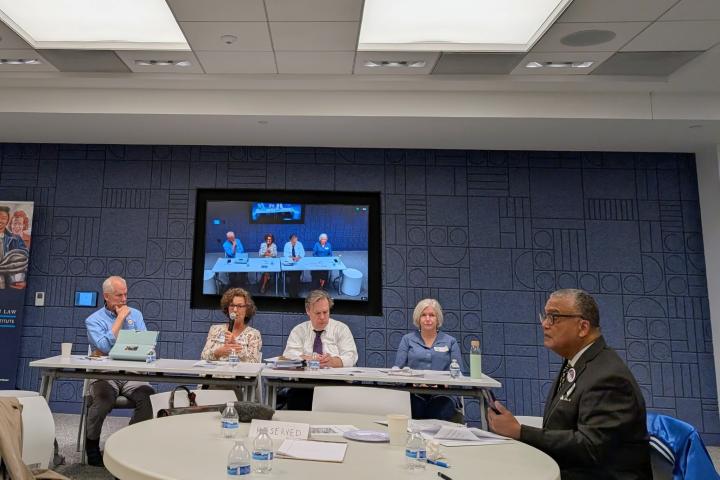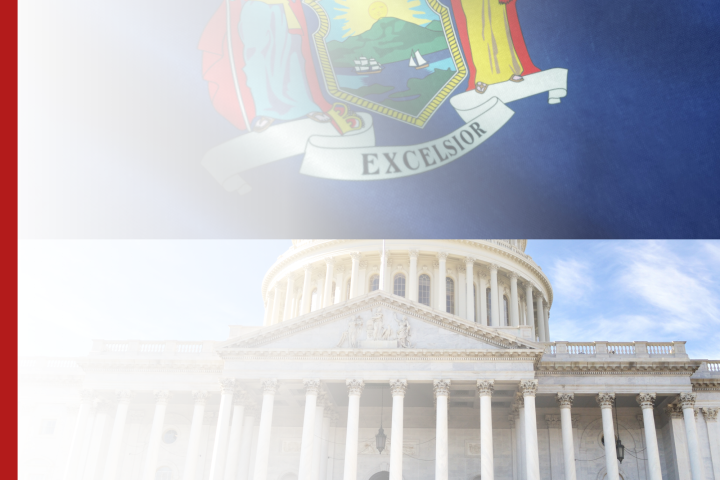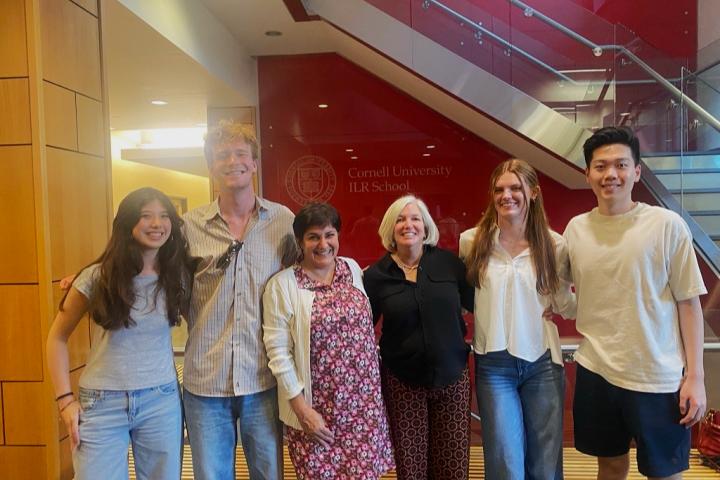
Achieving Progress Through Equitable Education
The day I was accepted to Cornell was one of the most important days of my life. My mom stared at me after hearing of my acceptance and with tears of joy in her eyes said to me, “I came to this country so I could receive an education and have a better life for myself. When I could not receive that education, my only goal was for my children to have the opportunity to be educated. Not only did you reach that goal, but you exceeded anything I could have ever dreamed of.”

(Enjoy this picture of my parents the day I committed to Cornell)
Both of my parents are immigrants who have always encouraged me to seize every educational opportunity because they’re firm believers in education’s ability to open doors of opportunity. I grew up in a NYC neighborhood where schools were underfunded and had limited resources. Hence, my parents pushed me to apply to schools outside of our neighborhood. I had to take exams and complete interviews to be accepted into my elementary, middle and high school just so I could receive a quality education, and none of these schools were near to my house.
Being put in a system at the age of 5 where my ability to do simple addition questions or read at a specific level determined if I was “worthy” enough of receiving a quality education allowed me ,from an early age, to understand the educational inequities within our society. Hence, I have immersed myself in the movement for educational equality.
I will never be able to repay my parents for supporting me in all my educational endeavors. Without them, I would not have been able to attend Cornell, which has opened so many doors for me. However, I acknowledge my privilege and know that there are so many other people out there who did not have the same support I had in pursuing an education. There are so many systemic barriers in our society preventing people from receiving an education and perpetuating the cycles of inequality within our society. Often times, people cannot access education due to racial and gender discrimination. These intersectional identities should not serve as barriers to education.
Therefore, I try to work on projects related to educational equity. I am grateful to be working with The Foundry this summer through the High Road Fellowship. The Foundry is creating a social enterprise to sell the products created by low-income, unemployed or underemployed community members who are predominantly Black and/or Brown. These community members will sell their products they learn to produce at the Foundry through the social enterprise o gain an extra source of income. I am working on creating the business proposal for the new social enterprise with guidance from The Foundry's Education Director and Executive Director. Additionally, I will be working with one of the educators at The Foundry on makerspace research to help The Foundry find more affordable resources for the current education development programs. Furthermore, I will be working with a member of The Foundry who is working on the logistics of creating the new social enterprise. I will be assisting him with interviewing current social enterprises on their business model. Then, I will be organizing and analyzing the information from the interviews and creating reports to find what information can help with fulfilling The Foundry's mission. Furthermore, I will be researching local, state and federal funding opportunities to support education reinvestment for The Foundry.
Educational inequality is a complex issue and to truly address the problems with access to education, there has to be structural changes. There needs to be changes to funding distributions, recruitment processes, standardized testing, etc. However, before attempting to overhaul a system as a part of a movement, it is important to understand the people who are directly affected by current educational inequity and that is why I enjoy my work with The Foundry. The Foundry makes a direct impact on marginalized communities.



